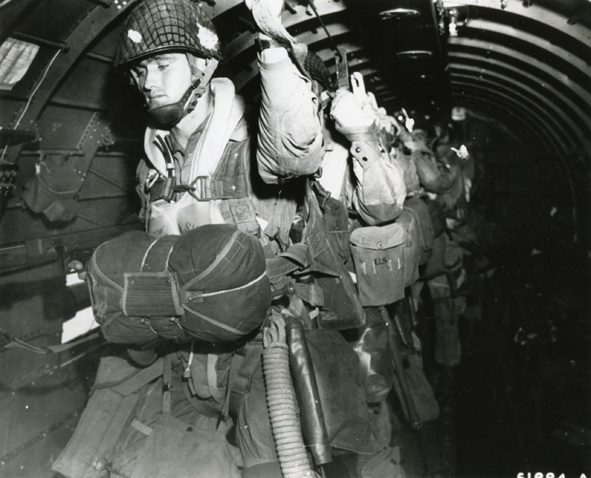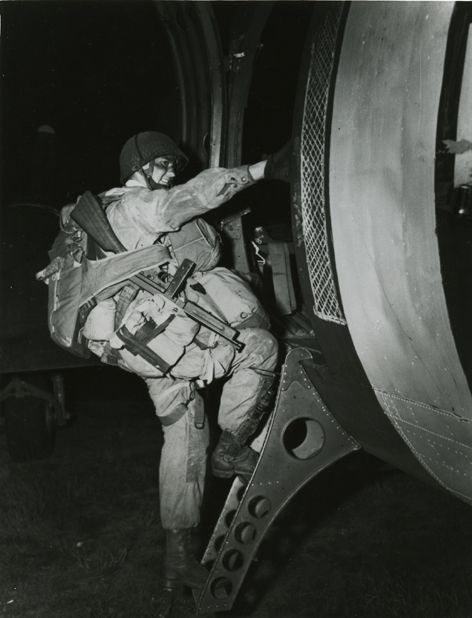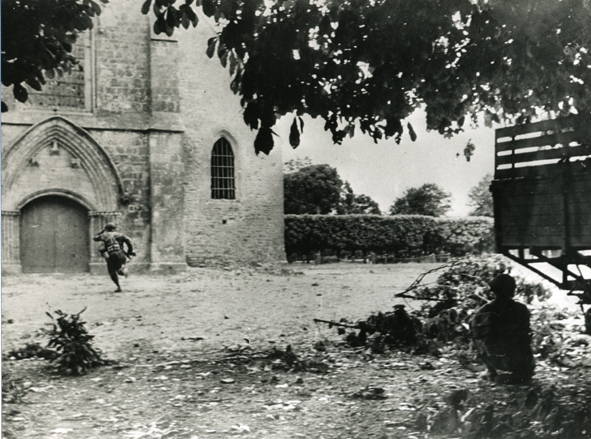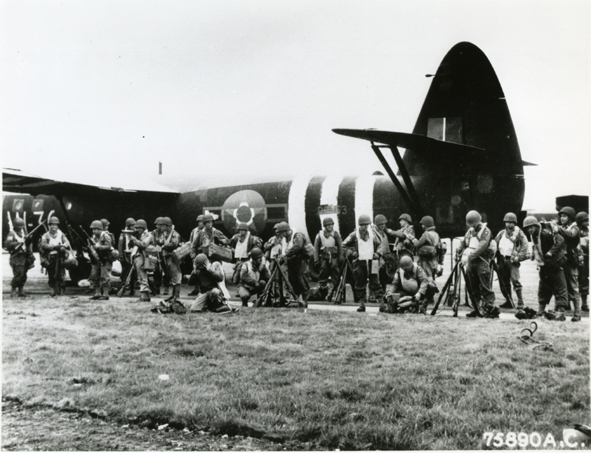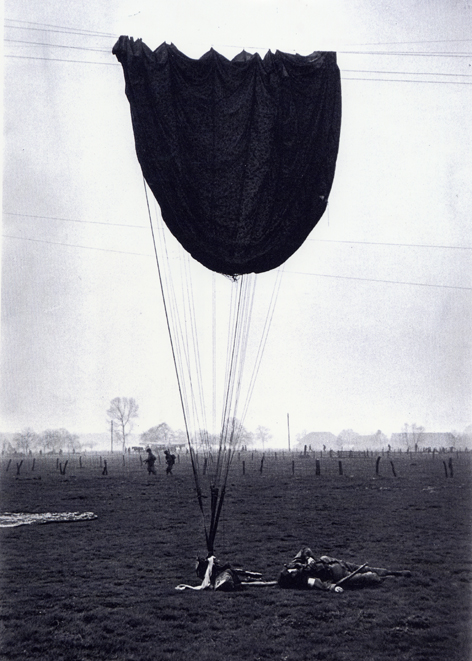- Point of Interest
- 10 Rue Eisenhower, 50480 Sainte-Mère-Église, France
Shortly after midnight on 6 June 1944, D-Day began with the landing of American and British airborne troops on French soil. Two U.S. Airborne Divisions were tasked to establish a bridgehead in the sector of Sainte-Mère-Église, to back up the landing of the U.S. infantry on Utah Beach.
Shortly after midnight on 6 June 1944, D-Day began with the landing of American and British airborne troops on French soil. The 82nd and 101st U.S. Airborne Divisions were tasked to establish a bridgehead on the Western flank of the Allied assault. 13.348 paratroopers jumped from 821 Douglas C-47 planes, while 4.400 soldiers were transported in gliders. Their mission was to back up the landing of the American infantry troops at Utah Beach and to help them take Cherbourg as fast as possible.
To start with, the 82nd Division led by General Matthew B. Ridgway was to take Sainte-Mère-Église, a village on the main road linking Caen to Cherbourg, which was a likely route for a German counterattack. The paratroopers also blew up a number of bridges to prevent German reinforcements coming in from the south, and to establish strategic bridgeheads for further military operations.
The 101st airborne division under General Maxwell D. Taylor had to secure a safe exit from the landing beaches. Units of this division also conducted raids against inland targets like the German gun battery located in Saint-Martin-de-Varreville and a number of bridges leading to Carentan.
As the transport aircraft and the gliders closed in on the French coast, scouts marked out six drop zones with beacons and lights. This approach was successful in only one of these zones: most paratroopers landed outside the designated areas. Confusion thus prevailed as the different units could not gather up. Still, the two U.S. airborne divisions were able to accomplish most of their missions. Most importantly, Sainte-Mère-Église was liberated in the early hours of 6 June. In the afternoon the Germans managed a counterattack, but the lightly armed airborne troops held out until the next day when they were reinforced by tanks from nearby Utah Beach.

